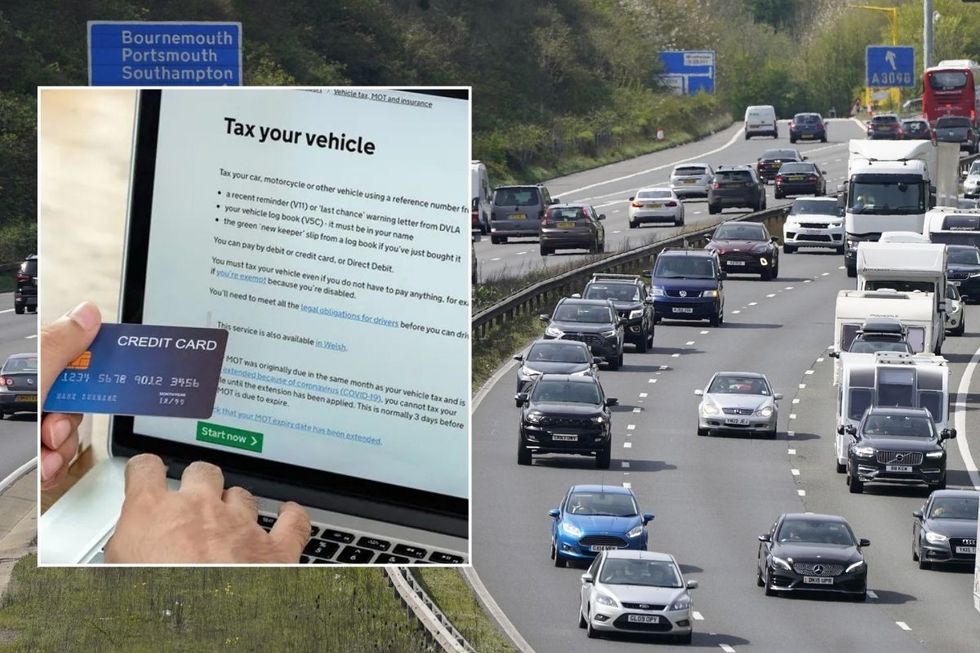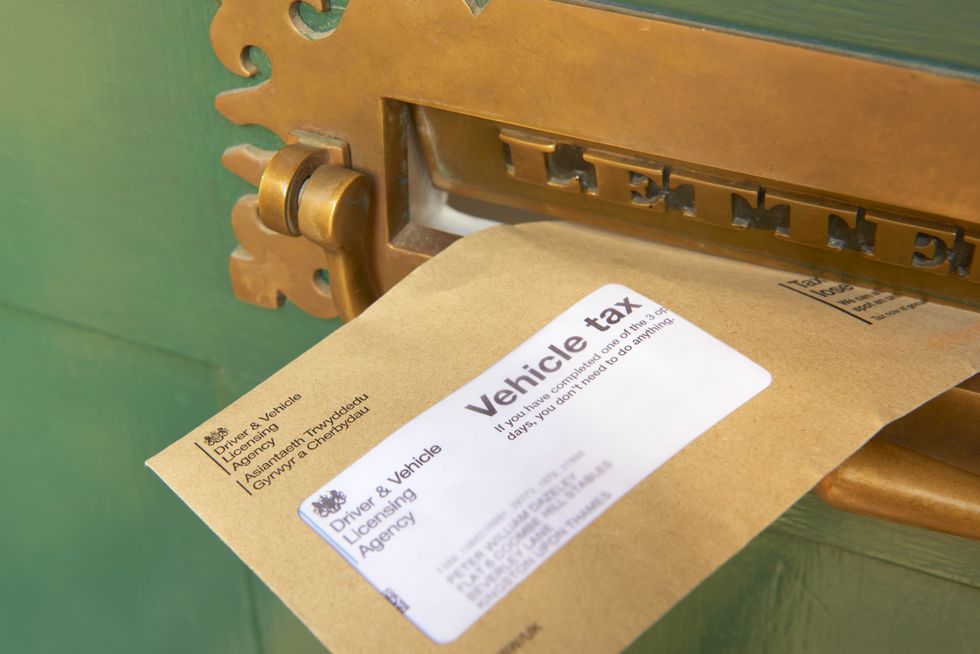WATCH: Rachel Reeves unveils new car tax changes launching in 2025
GB NEWS
The Treasury rejected calls to introduce pay-per-mile car tax changes prior to the Autumn Budget last year
Don't Miss
Most Read
Trending on GB News
Almost half of Britain's motorists are in favour of new car tax changes which could see people pay for every mile they drive, while others support charging vehicle owners by the weight of their car.
At present, drivers are required to pay car tax based on the emissions output of their vehicles, the engine size or the fuel type, depending on when the car was first registered.
Despite this, many are in favour of changing the system as less than a third of motorists believe drivers should be charged based on how polluting their vehicle is.
New data has found that 42 per cent of drivers think pay-per-mile car tax changes would be the fairest way to implement Vehicle Excise Duty.
Do you have a story you'd like to share? Get in touch by emailingmotoring@gbnews.uk

Drivers are in favour of introducing pay-per-mile car tax changes
X/GETTY
There had been calls from the industry prior to the Chancellor's Autumn Statement that a system of pay-per-mile car taxes should be introduced to charge motorists a fair rate for how much they drive.
Suggestions for the scheme included giving motorists a certain amount of "free" miles before they had to start paying for how much they used the roads.
Others said motorists in rural areas should receive more "free" miles since they are further away from services like supermarkets and hospitals.
Former Chancellor Jeremy Hunt had previously spoken about the need for the system of motor taxation to be fairer when he announced electric vehicles would have to pay tax from 2025.
In the 2022 Autumn Statement, he said all drivers should pay to use the roads, no matter what vehicle they use.
The research, from Auto Express, stated that 22 per cent were in support of charging drivers by the weight of their car, which could help the Government cover any financial issues as SUV sales continue to rise.
Alastair Crooks, from Auto Express, said: "Over the last decade, there has been a significant increase in traffic - and in the size and weight of vehicles people are driving.
"The heaviest cars on the market are now almost 3,000kg- the Mercedes EQS SUV tips the scales at 2,810kg, while the Rolls-Royce Phantom luxury saloon is 2,745kg."
The expert pointed to Geneva, Switzerland, which recently voted to implement a tax on electric vehicles based on weight, although this has been met with mixed reviews from residents.
Crooks questioned whether this method would lead to lighter vehicles being prioritised for environmental benefits while the new tax could lead to drivers being put off from investing in an electric vehicle.
He added: "Though Geneva's tax approach may not be perfect, it highlights the need for lightweight EVs, which offer better efficiency and lower production costs. Models like the Citroën e-C3 and Dacia Spring are early examples, and even larger EVs, such as the Vauxhall Frontera (weighing just over 1,500kg), show it's possible to balance practicality and weight.
"Of course, the issue isn’t limited to EVs - combustion engine cars have also grown heavier over the years (e.g., the 2,510kg BMW M5). A weight-based tax system could improve efficiency and driving dynamics across all vehicle types - a win-win for drivers and the environment."
LATEST DEVELOPMENTS:

New car tax changes for electric vehicles will be introduced on April 1, 2025
GETTYSpeaking to GB News last year, an HM Treasury spokesperson explained: "We have no plans to introduce road pricing.
"We are committed to supporting our automotive sector as we transition to electric vehicles in order to meet our legally binding climate targets."








